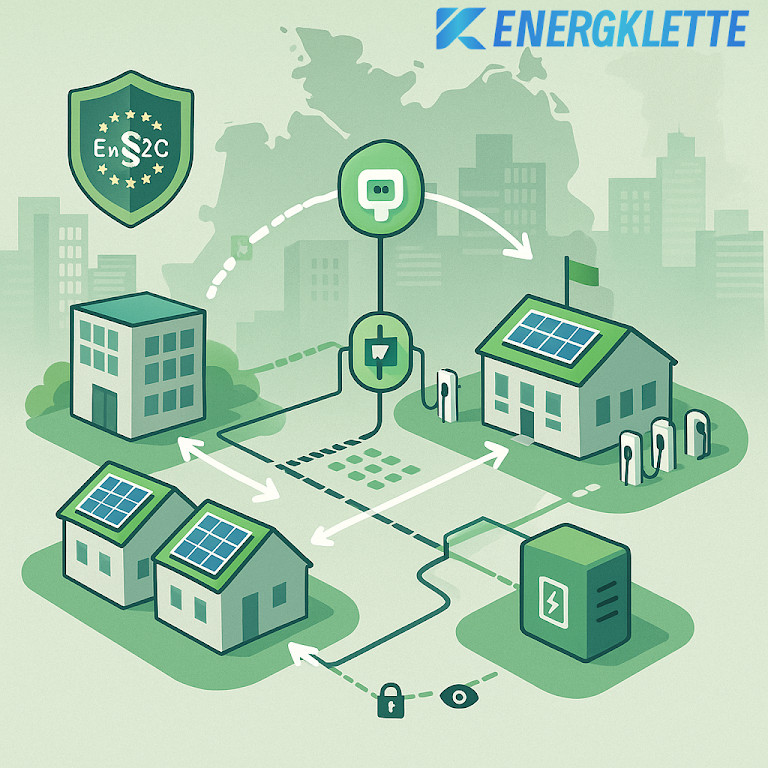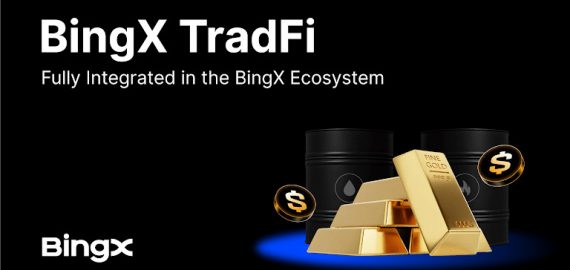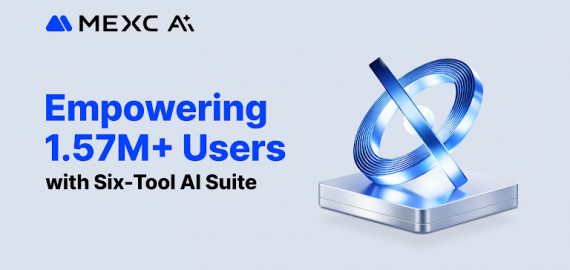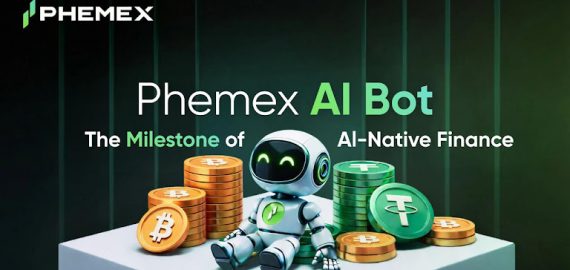EnergKlette Released a Compliance Implementation Plan for Energy Sharing

In Brief
EnergKlette is launching a protocol and tool stack for energy sharing in Germany, combining compliant metering with blockchain technology to enable localized green electricity certification, low-cost settlement, and flexible, community-driven electricity use in alignment with new regulatory standards.

The German power system has entered a “new normal” with a high proportion of renewables, where renewable energy is expected to account for 62.7% of net public electricity generation by 2024. The fluctuations in electricity prices and loads pose higher demands for local consumption and flexibility. At the federal level, a clear definition of “Energy Sharing” has been provided and incorporated into the revised text of Article 42c of the Energy Industry Act (EnWG), ushering in a compliance path for collaborative electricity use and settlement at the community level. EnergKlette has announced a protocol and tool stack aimed at energy sharing scenarios, focusing on localized green electricity certification, refined metering, and low-cost settlement, and is launching pilot solicitations for municipalities, utilities, and industrial parks.
The plan is based on “physical-digital integration,” combining compliant metering with blockchain-native credentials to form an integrated closed loop from the electricity meter to the contract. Core features include: digital green certificates generated every 15 minutes carrying metadata such as power source type, geographical location, and carbon intensity; a minimum transaction granularity of 0.01 kWh to accommodate residential photovoltaics and shared energy storage; and device fingerprint binding with anti-tampering mechanisms to suppress “phantom generation.” The entire process revolves around the principles of “data minimization” and “local priority,” ensuring auditability while reducing information exposure.
In response to the regulatory intent of prioritizing “the same distribution network area” for energy sharing, EnergKlette provides configurable modules for metering standards, allocation rules, and alignment of billing periods, supporting the delineation of smaller boundaries based on voltage levels and substation specifications, while being compatible with existing rate structures. Multi-party settlement employs a dual-track design of “split NFTs + billing period aggregation,” allowing community operators and distribution network companies to obtain verifiable ledger mirrors separately. The plan aligns with the EU Renewable Energy Directive (RED II) regarding non-discrimination requirements for renewable energy communities (RECs), reserving parameter slots and routing strategies for future cross-regional expansion.
On the execution front, the AIoT edge components of EnergKlette complete data cleansing and anonymization locally, then write proofs and summaries onto the blockchain, reducing central load and latency. Federated learning is used for regional electricity forecasting and equipment health monitoring, with model parameter exchanges not carrying raw data, balancing prediction accuracy and privacy. The metering side prioritizes adaptation to the rapidly advancing framework for smart meter and gateway deployment in Germany, following the reform guidelines of MsbG/GNDEW, providing auditable and replayable on-chain credentials to serve compliance reviews for energy sharing.
EnergKlette will open a sandbox toolkit for municipalities and distribution network operators, along with community governance and carbon credit interfaces, encouraging projects aimed at “local self-use priority and community circulation of excess electricity.” The foundation states that the first batch of pilots will focus on the combined scenarios of “schools-residential-public charging” and “industrial park rooftop photovoltaics-shared energy storage,” emphasizing auditable metering and explainability of billing periods, steadily aligning with regulatory guidelines and industry standards.
Disclaimer
In line with the Trust Project guidelines, please note that the information provided on this page is not intended to be and should not be interpreted as legal, tax, investment, financial, or any other form of advice. It is important to only invest what you can afford to lose and to seek independent financial advice if you have any doubts. For further information, we suggest referring to the terms and conditions as well as the help and support pages provided by the issuer or advertiser. MetaversePost is committed to accurate, unbiased reporting, but market conditions are subject to change without notice.
About The Author
Gregory, a digital nomad hailing from Poland, is not only a financial analyst but also a valuable contributor to various online magazines. With a wealth of experience in the financial industry, his insights and expertise have earned him recognition in numerous publications. Utilising his spare time effectively, Gregory is currently dedicated to writing a book about cryptocurrency and blockchain.
More articles

Gregory, a digital nomad hailing from Poland, is not only a financial analyst but also a valuable contributor to various online magazines. With a wealth of experience in the financial industry, his insights and expertise have earned him recognition in numerous publications. Utilising his spare time effectively, Gregory is currently dedicated to writing a book about cryptocurrency and blockchain.


















































